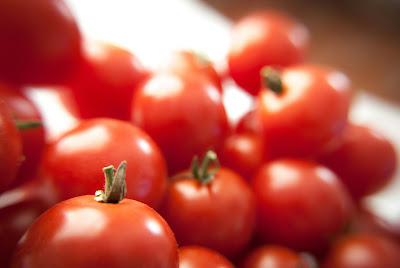The essential nutrients for energy and brain health: Vitamin B12
Vitamin B12, also known as cobalamin, is a crucial water-soluble vitamin. It plays an essential role in maintaining nerve function, supporting the production of red blood cells and aiding in DNA synthesis. A deficiency of this essential nutrient can lead to serious health complications, making it necessary to ensure that a proper amount is consumed.
A vitamin deficiency such as these can cause serious health problems
What is Vitamin B12?
The only vitamin containing an important mineral cobalt is Vitamin B12. This gives it its scientific name "Cobalamin". It is found mainly in animal-based food and is therefore very difficult to get enough of if you're a vegetarian or vegan by diet alone.
Health Benefits of Vitamin B12
Supports Energy Production
B12 assists in the metabolism of carbohydrates, proteins, and fats by turning food into energy. A deficiency can lead to fatigue and weakness.
Essential for Brain and Nervous System Health
Vitamin B12 is necessary for the maintenance of healthy nerve cells and for the production of myelin, a fatty substance which serves as insulation around nerves. A person lacking this vitamin may suffer from any number of neurological conditions: from memory loss to numbness in their hands or feet.
Prevents Anemia
B12 is necessary for the production of red blood cells. A deficiency can lead to megaloblastic anemia which results in symptoms such as weakness, dizziness and shortness of breath.
Supports Heart Health
B12 helps to regulate levels ofhomocysteine in the blood, and elevated levels of homocysteine are linked with an increased risk of heart disease.
Boosts Mood and Mental Health
Vitamin B12 plays a role in the synthesis of serotonin, which affects mood regulation. Low levels are associated with such conditions as depression and mood disorders.
Where can I get Vitamin B12 from?
Sources of B12 Vitamin Animal-Based Sources:
Beef, liver, pork, chicken and seafood (salmon, tuna, clams, shrimp)
Dairy Products (milk, cheese, yogurt).
Eggs Plant-Based and Fortified Sources:
Fortified Cereals
Nutritional Yeast
Plant-Based Milk (e.g. soy, almond, oat, coconut). Note: make sure it is fortified with B12.
B12 Supplements (especially recommended for vegans and vegetarians) The Symptoms and Risks of Vitamin B12 Deficiency
A lack of vitamin B12 can lead to:
Fatigue and weakness
Numbness and tingling in the hands or feet; an unsteady gait
Memory problems and cognitive decline
Mood changes, including depression and irritability
Glossitis (inflamed tongue) and mouth ulcers. People at higher risk of deficiency include:
Vegans and Vegetarians (lack of exposure to animal products)
Older Adults (reduced gastric acid hierarchic to reduced absorption)
People with Digestive Disorders (e.g. Crohn’s disease, celiac disease)
Those Who Have Had Gastric Surgery How Much Vitamin B12 Do You Need?
The recommended dietary allowance (RDA) for adults is 2.4 micrograms. During periods of pregnant or breast-feeding, higher doses may be necessary. Vitamin B12 Supplements: Are They Necessary?
If you struggle to eat enough B12 through food alone, then supplements are a good fix. They come in many forms: tablets, capsules, sublingual (under-the-tongue) options. Sometimes people need B12 injections, especially such as those who do not absorb the vitamin well orally because of other problems or types of food they eat. Some people may need to take as many as 1000mcgs of B12 per month to keep up with their needs. Conclusion
Vitamin B12 is essential for maintaining energy levels, cognitive function and overall health. While most people can get enough through diet alone, some groups – especially vegetarians, vegans and older adults – may require supplements. If you have any symptoms of a deficiency in Vitamin B -12. For help and direction, consult
your health care provider. Ask them to test you for these particular vitamins, and make sure they are within satisfactory levels number-wise.




Comments
Post a Comment